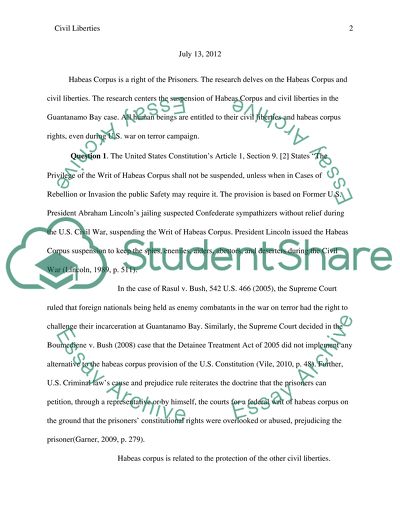Cite this document
(“Civil Liberties, Habeas Corpus, and the War on Terror Research Paper”, n.d.)
Civil Liberties, Habeas Corpus, and the War on Terror Research Paper. Retrieved from https://studentshare.org/history/1454292-civil-liberties-habeas-corpus-and-the-war-on
Civil Liberties, Habeas Corpus, and the War on Terror Research Paper. Retrieved from https://studentshare.org/history/1454292-civil-liberties-habeas-corpus-and-the-war-on
(Civil Liberties, Habeas Corpus, and the War on Terror Research Paper)
Civil Liberties, Habeas Corpus, and the War on Terror Research Paper. https://studentshare.org/history/1454292-civil-liberties-habeas-corpus-and-the-war-on.
Civil Liberties, Habeas Corpus, and the War on Terror Research Paper. https://studentshare.org/history/1454292-civil-liberties-habeas-corpus-and-the-war-on.
“Civil Liberties, Habeas Corpus, and the War on Terror Research Paper”, n.d. https://studentshare.org/history/1454292-civil-liberties-habeas-corpus-and-the-war-on.


